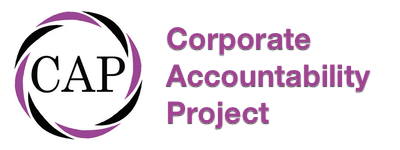Author: Shelley Chu
Ferrovial (which acquired Broadspectrum in May 2016) has said that it would not renew its contract with the Australian government to operate Australia’s Regional Processing Centres (RPCs) after its contract expires in October 2017. Wilsons Security, which provides security services in RPCs, has followed suit, stating that further provision of offshore detention services is not in line with its “long-term strategic priorities”. Secro and G4S, the remaining two potential security contractors, have also indicated that they are unlikely to tender for contracts to operate Australia’s RPCs. Matthew Phillips, the human rights campaign director at GetUp, pointed out that the government’s offshore detention system is “floundering”, as evidenced by the reluctance of companies to be associated with RPCs.
Although not explicitly mentioned by Ferrovial and Wilsons Security, these companies are rightfully concerned with the legal, financial and reputational risks involved in their operation of RPCs. In April 2016, the PNG Supreme Court ruled that the detention of asylum seekers in the Manus Island Detention Centre was unconstitutional as it violated detainees’ right to personal liberty. Broadspectrum could be liable to pay compensation for the illegal detention of detainees. The United Nations Human Rights Committee also found that as many as 51 cases of refugees have been incarcerated in RPCs by Australia in violation of Australia’s obligations under international law. Recently, the Committee ordered the Australian government to pay compensation to 5 refugees it detained between 2009-2015 on “secret security grounds” without justifying why they imposed a security risk or providing them with a chance to dispute relevant evidence.
Although it is the Australian government that funds the RPCs, Broadspectrum (now Ferrovial), as the lead contractor of the Nauru and Manus Island detention centres since 2014, is responsible for making decisions about the welfare, movement, communication, behaviour and living conditions (such as accommodation, food, clothing) of detainees. Ferrovial can also authorise the use of force against detainees. Thus, international law experts have said that these contractors could be liable in international law for crimes against humanity under the Rome Statute. Furthermore, a report done by No Business In Abuse (NIBA) in 2015 (titled “Transfields complicity in gross human rights abuses within Australia’s offshore detention regime”) found that Broadspectrum was complicit in 47 international law violations, namely: prohibition against arbitrary detention, right to liberty, freedom of movement, prohibition against cruel, inhumane and degrading treatment, prohibition against child abuse, right to the highest attainable standard of health, and right to the security of the person. In March 2015, an independent review commissioned by the Australian government found evidence of rape, indecent assault, sexual harassment and physical assault in RPCs, some of which were committed by contract services providers. Broadspectrum could be liable under domestic law to pay compensation for severe physical and mental harm suffered by detainees.
Furthermore, the UN Guiding Principles on Business and Human Rights, and the OECD Guidelines for Multinational Enterprises, although not legally binding, set global standards which require businesses to respect human rights. Guiding Principle 17 requires businesses to conduct human rights due diligence to assess the human rights impact of entering into a new business relationship, and to take action to mitigate negative impacts. The NBIA July 2016 Report (titled “Association with Abuse”) found that Ferrovial breached this requirement as it took over Broadspectrum in May 2016 without adequately assessing evidence of its gross human rights abuses in operating RPCs. In addition, the NBIA Report also found that Ferrovial breached Guiding Principle 18 by contributing to human rights abuses due to its role in maintaining the RPCs.
Ferrovial’s investors and financiers have the responsibility to respect human rights as well. According to the Interpretive Guide on the Guiding Principles, an entity can breach the Guiding Principles due to its business relationship with another entity which causes or contributes to adverse human rights impacts. The NBIA Report found that Ferrovial’s institutional investors may be in breach of the Guiding Principles by financing Ferrovial’s general activities, and banks by providing loans for the specific purpose of Ferrovial’s takeover of Broadspectrum or for Ferrovial’s general corporate purposes. Moreover, as the majority of Ferrovial’s financiers have strong human rights commitments (such as HSBC, JP Morgan Chase, Goldman Sachs and Citigroup), it is not in their interests to be associated with a company with records of human rights abuses. Thus, NBIA recommends Ferrovial’s investors and financiers to either use their leverage to mitigate Ferrovial’s gross human rights abuses, or sever their relationship with Ferrovial.
In short, although Ferrovial has declined to renew its contract with the Australian government to operate RPCs after October 2017, it is not absolved of responsibility for the existing human rights abuses that it has committed – it could be liable to remedy the physical and mental harm suffered by detainees in RPCs due to their arbitrary detention in degrading conditions. In addition, not only is its reputation damaged, it also bears the financial risk of its clients, financiers and investors severing business relationships from it in order to avoid controversy. At the same time, the reluctance of companies such as Ferrovial, Wilsons Security, Secro and G4S to act as future service providers of RPCs reveals the need for the government to consider alternative solutions to manage migration in light of the unsustainability of the current offshore detention system.
http://www.afr.com/business/ferrovial-forced-fo-run-nauru-manus-detention-centres-until-late-2017-20160805-gqlr2ihttps://www.theguardian.com/australia-news/2016/jul/25/ferrovial-staff-risk-prosecution-for-managing-australian-detention-campshttp://hrlc.org.au/wp-content/uploads/2016/08/Association_with_Abuse.pdfhttp://www.radionz.co.nz/international/programmes/datelinepacific/audio/201814894/australia’s-offshore-detention-foundering,-says-ngohttp://www.afr.com/business/wilson-security-pulls-out-of-detention-centres-after-nauru-manus-protests-20160901-gr6qwdhttps://d68ej2dhhub09.cloudfront.net/1321-NBIA_Report-20Nov2015b.pdf
